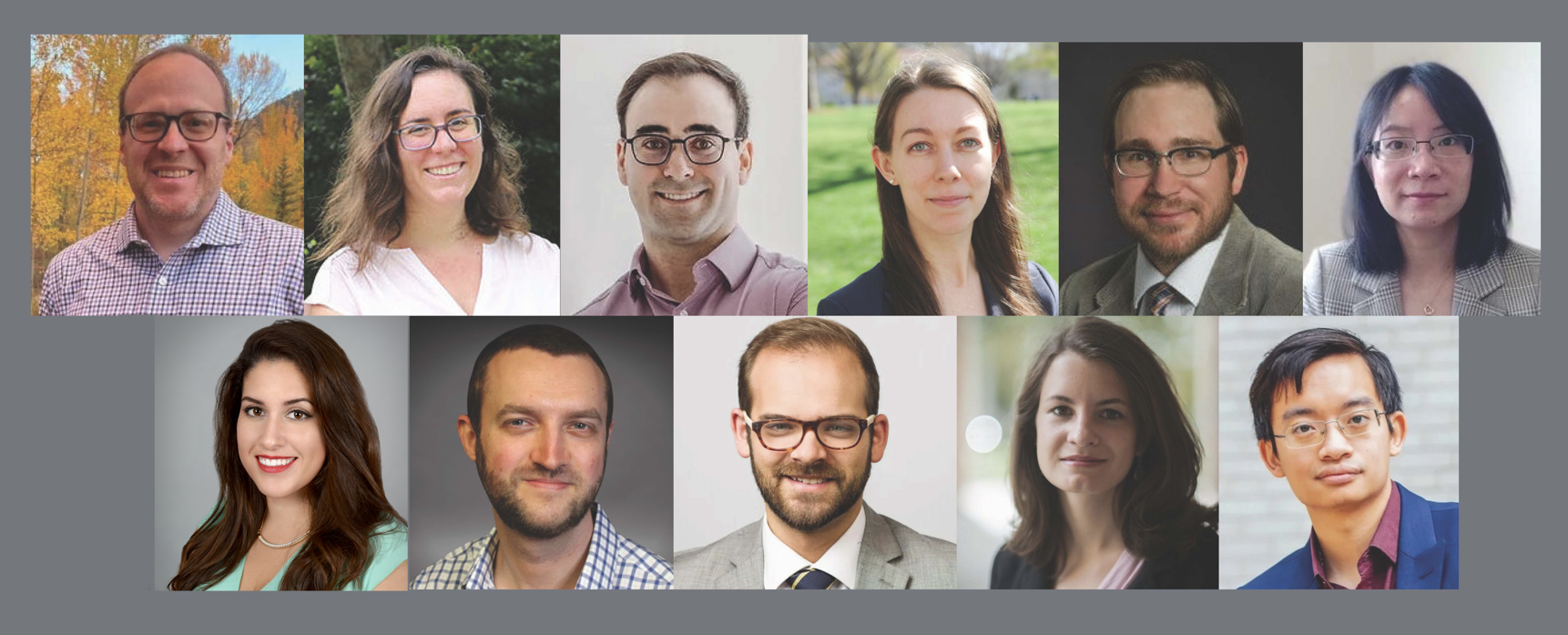
Welcoming Eleven New Faculty!
Pictured above: Andy Baker, Mollie Cohen, Tyler Girard, Kaylyn Jackson Schiff, Bryce Dietrich, Shan Zhou, Liana Eustacia Reyes, Daniel Schiff, Jesse Crosson, and Miriam Barnum
Purdue Political Science is thrilled to welcome eleven new colleagues hired in the last two years. They join a vibrant department that emphasizes collaborative, interdisciplinary research, with work that appears in leading disciplinary and interdisciplinary journals and academic presses. New faculty broaden and deepen our research and teaching contributions in all fields. The extraordinary growth in the department is part of a larger pattern of strategic growth in the College of Liberal Arts to enhance the research profile of the college and intersect with important initiatives and centers across campus, including data science, national security, sustainability, development, technology, and artificial intelligence.
This year, we are delighted to welcome Dr. Andy Baker and Dr. Mollie Cohen in Comparative Politics, and Dr. Shan Zhou in Public Policy. Collectively, bring strength in areas of development, electoral behavior and administration, democracy, political economy, and public policy. They also bring strengths in research methodology in the areas of survey research, experimental methods, and causal inference. Their research has important implications for economic, social, energy, and election policy in both U.S. and global settings.
Last year, we welcomed Dr. Jesse Crosson, and Dr. Bryce Dietrich in American Politics, Dr. Kaylyn Jackson Schiff, and Dr. Daniel Schiff in American Politics and Public Policy, and Dr. Miriam Barnum, Dr. Tyler Girard, and Dr Liana Eustacia Reyes in International Relations. They bring strengths in technology and governance, the study of elite and mass behavior, American political institutions and processes, and the implications for representation and public policy. In comparative and international fields, new faculty bring growing strength in national security and weapons of mass destruction, law and the resolution of conflict, comparative and international political economy, and authoritarian regimes. New faculty also bring new strengths in innovative methods including computational methods for image and audio data, natural language processing, latent variables, experimental methods, and causal inference, and mixed method designs.
Please visit our “People” page to learn more about our new and continuing faculty!